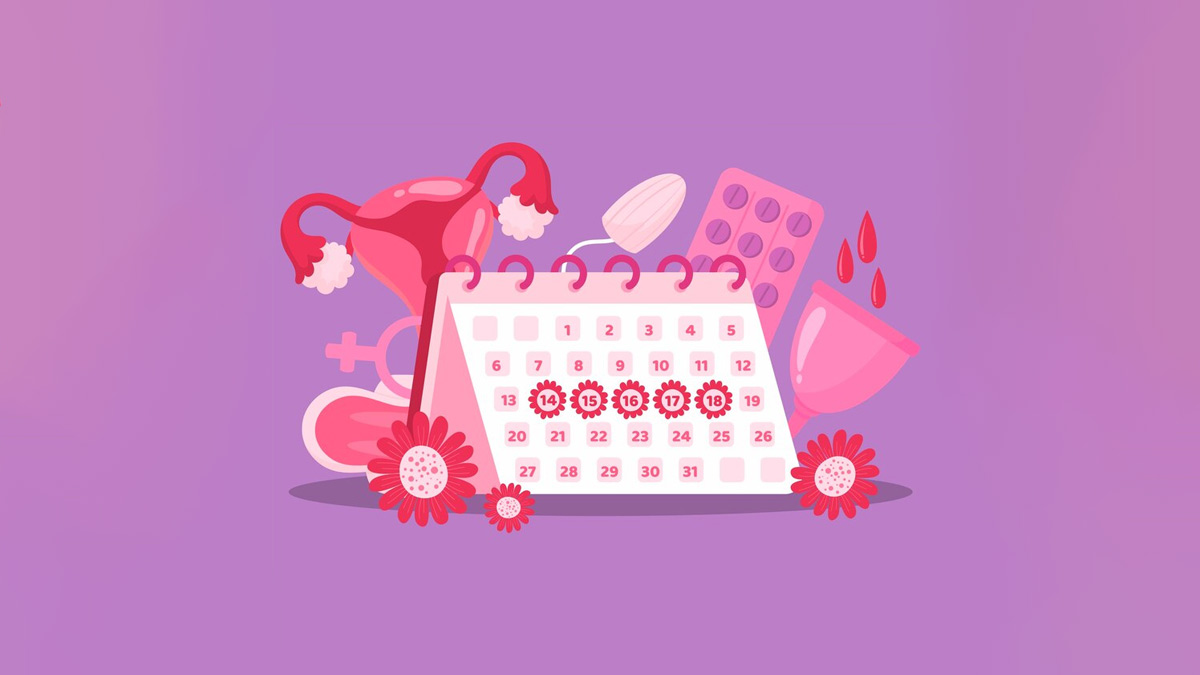
In a matter of seconds, millions of hearts broke as Saikhom Mirabai Chanu narrowly missed out on an Olympic medal by just one kilo. A failed lift left her in fourth place in the women's 49 kg weightlifting event at the Paris 2024 Olympics. Despite the crushing disappointment, Chanu stayed positive, expressing contentment with her performance in her comments to the press. She also said that she was on the third day of her period during the competition, acknowledging how challenging that experience can be for women worldwide.
We spoke with Dr Astha Dayal, Director of Obstetrics & Gynaecology at CK Birla Hospital Gurugram, who explained how the first three days of a menstrual cycle impact a woman's body and also athletic performance.
Indian weight lifter Mirabai Chanu, who finished fourth in the women’s 49 kg event at the Paris Olympics, admitted that she was not in her best form because she was on the third day of her periods. She said, "I am happy with the performance... I tried my best to give my 100 to give India a medal. I managed this despite having very little time for recovery after my injury... but it was not in destiny. It was the third day of my periods and in Tokyo it was my second day, so that also affects your body a bit," Mirabai told reporters, as per Economic Times.
To gain more insight, we consulted Dr Astha Goyal, who explained the physiological changes and symptoms experienced during the first three days of menstruation and their effects on the female body.
She told us, “A woman's body experiences several physiological changes during the first three days of her menstrual cycle, which can cause a range of symptoms, such as weariness, weakness, and discomfort. Hormone fluctuations and the actual process of uterine lining shedding are the main causes of these changes.”
Dr Astha outlined the typical alterations and symptoms experienced during the first three days of periods:
During menstruation, the uterus releases prostaglandins, which are hormone-like substances that cause the uterine muscles to contract. Although these contractions aid in the uterine lining's expulsion, they can also result in lower abdominal pain, cramping, and discomfort. Each experiences pain differently, and it might radiate to the thighs and lower back.
The strongest bleeding usually occurs in the first few days of menstruation, and this might cause a brief decrease in iron levels, particularly in women with low iron storage. Anaemia may result from this, bringing on symptoms including weakness, weariness, and lightheadedness.

The onset of menstruation causes a considerable decline in oestrogen and progesterone levels, which can have an impact on mood, energy levels, and general well-being. In addition to causing discomfort, the decrease in these hormones can also result in bloating and fluid retention.
Weakness and fatigue may result from blood loss, hormone fluctuations, and the body's attempt to remove the uterine lining. During this time, some women may also get migraines or headaches.
Don't Miss: Menstrual Cycle Syncing: What Is It & How To Do It
In certain women, the release of prostaglandins can also have an impact on the digestive system, resulting in symptoms including indigestion, nausea, and diarrhoea.
Dr Astha explained that menstrual-related physiological changes and symptoms can significantly impact athletic performance, particularly in demanding sports like weightlifting, as seen with Olympic weightlifter Mirabai Chanu. These factors may influence performance in the following ways:
1. Decreased Energy: Anaemia can be brought on by severe bleeding and the iron loss that follows, which can make you tired and less able to exert yourself. This can result in a reduction in an athlete's strength, stamina, and general performance, particularly on days when the bleeding is at its worst.
2. Muscle Weakness and Pain: An athlete's capacity to compete at their best may be hampered by menstrual cramps and the resulting muscle soreness. In sports like weightlifting, where movement is essential, pain and discomfort in the lower back and abdomen can limit power output.

3. Reduced Concentration and Focus: Hormonal changes can impact cognitive processes, which can result in a reduction in focus and concentration. This can be especially difficult in sports where time, accuracy, and mental toughness are crucial.
4. Effect on Recovery: The body experiences increased stress during menstruation, which can prolong the time it takes for the body to recover from strenuous exercise. This could provide a challenge for athletes who have a strict training regimen to adhere to.
5. Psychological Effects: Hormonal fluctuations during menstruation often cause mood swings, impatience, and emotional sensitivity. These psychological impacts may have an impact on an athlete's motivation and self-assurance by influencing their mental state.
The combination of physical pain, hormonal fluctuations, and blood loss on the third day of her menstrual cycle likely contributed to Mirabai Chanu's heightened fatigue. These factors probably led to feelings of weakness and exhaustion, impacting her performance in a strength-demanding sport.
Dr Astha recommended that athletes and coaches consider these physiological changes when planning training and competition schedules. Adjusting workloads, enhancing nutrition, and employing recovery strategies can help mitigate the negative effects of menstruation on athletic performance.
Keep reading Herzindagi for more such stories.
Credits: Mirabai Chanu Instagram/Freepik
Also watch this video
Herzindagi video
Our aim is to provide accurate, safe and expert verified information through our articles and social media handles. The remedies, advice and tips mentioned here are for general information only. Please consult your expert before trying any kind of health, beauty, life hacks or astrology related tips. For any feedback or complaint, contact us at [email protected].